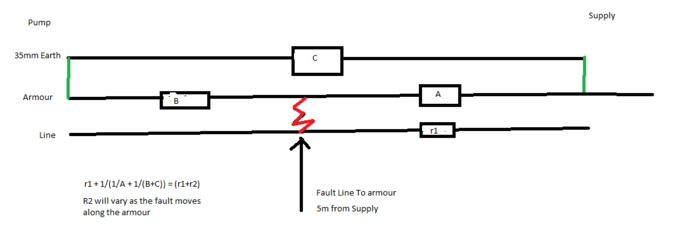I think i got to the same / similar answer:
r1 will always increase as you move away from the supply.
A will also increase as you move away from the supply
B will decrease as you move away from the supply
C will be a constant but is in series with B.
Both B+C are in parallel with A.
Therefore
r1+r2 = r1+ 1/((1/A)+(1/(B+C)))

Bugger, wont let me attach a spreadsheet.

But yea, around 50m i make it
r1 will always increase as you move away from the supply.
A will also increase as you move away from the supply
B will decrease as you move away from the supply
C will be a constant but is in series with B.
Both B+C are in parallel with A.
Therefore
r1+r2 = r1+ 1/((1/A)+(1/(B+C)))

Bugger, wont let me attach a spreadsheet.

But yea, around 50m i make it
















